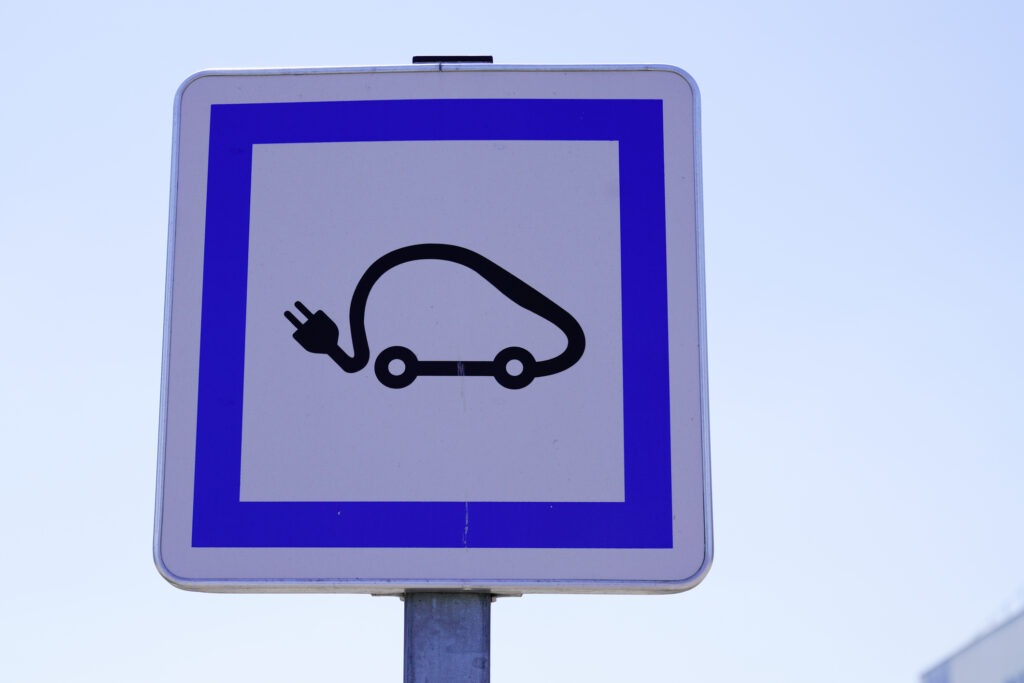Volvo overtook Tesla in the Netherlands EV market in October
29 November 2023

In October, the Volvo XC40 overtook the Tesla Model Y as the most popular electric vehicle (EV) in the Netherlands. José Pontes, data director at EV-volumes.com, unpacks the country’s EV market trends.
Consisting of battery-electric vehicles (BEVs) and plug-in hybrids (PHEVs), 11,776 EVs were registered in the Netherlands in October. The overall market fell by 2% year on year, reaching a total of 28,362 units. This meant EVs represented 42% of the country’s entire new-car market. This was mostly thanks to BEVs, which made up 29% of all new-car sales and 69% of new-EV sales.
The plug-in share can be expected to reach over the halfway mark in December, putting the 2023 total at roughly 44%. Therefore, the Dutch market could finalise its EV transition before the end of the decade.
The wider new-car market saw the Kia Picanto rank first and the VW Polo third. Neither of these smaller models offers a plug-in version. Meanwhile, the Volvo XC40 in second, the Kia Niro in fourth, and the Tesla Model Y in fifth, were either all-electric or heavily electrified. This confirms that the EV transition at the premium end of the market is advanced, while affordable segments have a long way to go.
Volvo the victor
With 750 registrations in October, the Volvo XC40 broke the Model Y’s (647 units) winning streak that it had built up in August and September. The Kia Niro (500 units) took third, keeping the refreshed Tesla Model 3 (415 units) in fourth. This was a promising result for the sedan, which might end up as the best-selling model in the final quarter of 2023.
In the first half of the table, Volkswagen (VW) Group placed four models in the top 10. In sixth, the ID.4 was the conglomerate’s best-selling model, closely followed by the ID.3 in seventh, the Skoda Enyaq in eighth and the Audi Q4 e-Tron in ninth.
The 14th-place Cupra Born (another MEB model) finished the month with 210 registrations, a new best for 2023. Then the Porsche Cayenne PHEV recorded its best result since December 2015, with 206 registrations. The plugin versions represented 99% of all Cayenne registrations in the Netherlands last month.
This high score is thanks to the first deliveries of the refreshed SUV, which now has a 26kWh battery. This is not much compared to the 50kWh capacity of certain Chinese plug-in hybrids, but it is three times larger than the original Cayenne PHEV’s battery launched back in 2015.
The Volvo S/V60 PHEV came in 16th with 202 registrations, a new best result in three years. These record results were offset by unusually poor performances from Ford Kuga PHEV (173 units) and Lynk & Co 01 PHEV (170 units). Next year, Link & Co is expected to offer a new BEV based on the SEA platform. It will be a lifeline for the Chinese brand’s performance in the Netherlands.
Outside the top 20, a couple of models recorded good results, like the Volvo C40 (158 units) and the BYD Atto 3 (106 units). However, the big news came from the full-size segment. This segment has long been dominated by Audi, thanks to the success of the Audi e-Tron and Q8 e-Tron.
However, October could mark the end of the brand’s domination. While the Porsche Cayenne PHEV outsold the Audi Q8 e-Tron by 66 units, the SUV can be expected to return to a two-digit performance soon.
October also signalled the landing of three new full-size models, which might disrupt the category’s status quo. XPeng’s G9 posted its first volume month in the country with 56 units. The model is competitively priced. It starts at just €58,000, only €13,000 more than the Tesla Model Y Standard Range and €44,000 less than the Tesla Model X. A fully kitted G9 AWD Performance version can sell for €72,000, €30,000 less than the Model X.
Another model expected to have an impact is the Kia EV9, which landed in October with 75 registrations. Starting at €68,000, this vehicle offers great value for money. The BMW i5 also landed last month, with 63 units. The model almost beat its rival, the Mercedes-Benz EQE (65 units), in its debut month.
Telsa Model Y to take title?
The Tesla Model Y appears to have secured the 2023 title, with nearly 11,000 registrations between January and October. The crossover could be the eighth new model to win the award in the last 10 years, which shows how diversified and volatile the market is.
This could be the Model Y’s first best-seller title in the Netherlands. Although, it will be the carmaker’s fourth trophy in the country, after winning with the Model S in 2017 and 2018, and then the Model 3 in 2019.
The Volvo XC40 is most likely to take second place by the end of the year. This will be the first podium position for the Swedish brand since the XC90 PHEV took third back in 2016. The fourth-place Peugeot e-208 and seventh-place Tesla Model 3 could benefit from the recent poor performance of the Lynk & Co 01 PHEV in third.
The Tesla Model 3 climbed one position, to seventh, immediately followed by the VW ID.4, which also climbed a place, in this case to eighth. These two models benefitted from a slow month for the Ford Kuga PHEV. The 10th-place Renault Megane EV can be expected to try and surpass Ford’s crossover next month.
In the second half of the table, three models gained traction. The Peugeot e-2008 went up to 13th, the BMW i4 climbed to 14th and the BMW iX1 rose to 15th. The Hyundai Tucson PHEV replaced the Opel Mokka EV in 20th.
Battle for second
In the brand ranking, Tesla (11.1% market share) led the way. The race for second saw BMW and Volvo both take an 8.4% share. Meanwhile, Peugeot (6.9% share) had to contend with fifth-place VW (6.8% share) gaining ground.
As for OEMs with brands grouped, leader Stellantis (16.1%) failed to cement its leadership position, as second-place VW Group (15.6%) was on the rise. It benefitted from good results across its model range. With a slim share separating the two, the German OEM still has a chance to win this year’s title.
Geely–Volvo continued its steep descent, having dropped from 14.4% in September to its current 14.2%. However, this time it was not because of Volvo or Polestar. Instead, the responsibility fell on the shoulders of Lynk & Co, which is likely suffering from the shift away from PHEVs.
Finally, fourth-place Tesla (11.1%) lost ground to the Hyundai Motor Group (11%). The US company can be expected to rebound in November and again in December.



